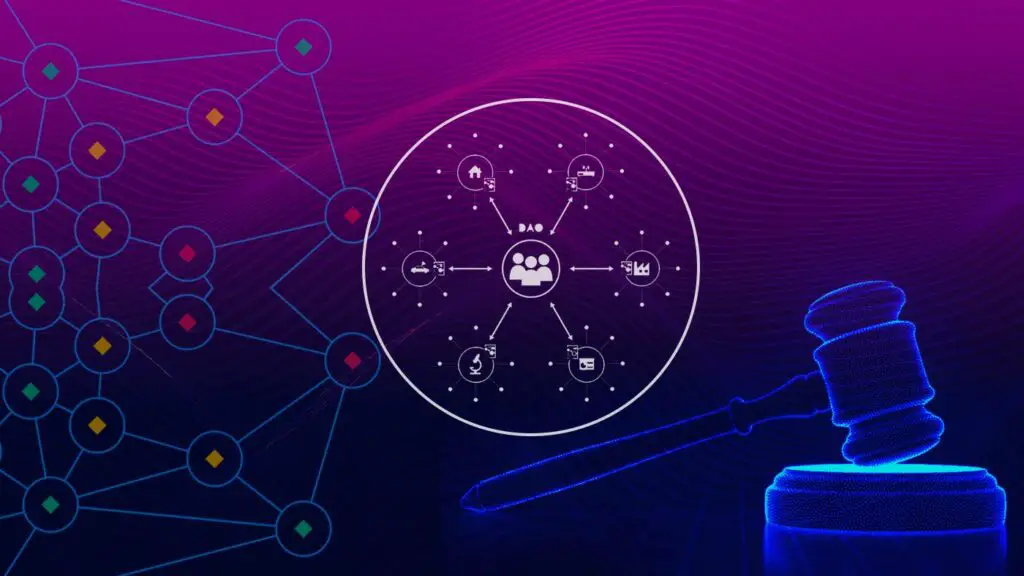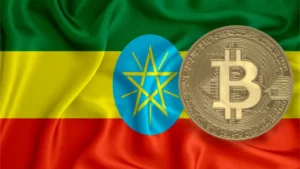-
Decentralized finance, fintech, and cryptocurrency proved once and for all that Web3 in Africa will provide the continent with one of the fastest digital transformations witnessed
-
Through the power of DeFi, it became clear that decentralized financial systems were necessary to aid the unbanked population.
-
Organizations like Afroguild, Cassava Network, and many more inspire millions to pursue the same, propelling the influence and growth of Web3.
The world is undergoing a rapid change of pace as the use of technology steadily becomes ingrained within our day-to-day lives. Today, many industries have adopted emerging technologies to improve performance, increase quality, and reduce the effort required for each task.
Among these emerging technologies is Web3, the next evolution of the internet. The concept of decentralization has swept the globe’s digital transformation like a wave.
From its initial achievements with cryptocurrency, organizations worldwide have recognized the importance and significance of decentralized applications for the future. Web3 offers better financial inclusion, new ways of protecting and safeguarding information, and gives users control over their data.
Amid this rising trend, Web3 in Africa has caught the eye of many investors, entrepreneurs, and innovators. In a decade, the continent has experienced a significant rise in African Web3 projects. These sparks of innovation have significantly impacted how locals approach finances and entrepreneurship, broadening their mindsets and skillsets.
Below is a brief look at how Web3 startups in Africa are gradually changing their ecosystem in real-time.
Unraveling the Pages of Web3
Web3, the next iteration of the internet, is an ever-expanding sector ushering in the fourth industrial revolution. To many, this term recently emerged, with many organizations leading the frontier to improve the globe’s financial inclusion rate. Although only a few recognize the journey and hurdles this emerging technology faced over the years.
Initially, Web3 manifested through the dynamic applications of Bitcoin, the first digital token. At its core, Bitcoin showcased the various traits of Web3: decentralization, immutability, and availability. Unfortunately, it received plenty of scorn and side-eye views as sceptics termed it a “hoax.”
Also, Read Web3 Healthcare: The Future of Medicine Unveiled.
Fortunately, this only dampened its momentum for a brief moment as the industry continued to gather believers and visionaries who foresaw its potential. From a sceptic’s perspective, at its surface, Bitcoin was an imaginary form of currency whose community and users determined its value.
These individuals failed to see it as a financial system that functioned without the need for centralized control. In addition, it maintained its integrity, fortifying its services against Web2 hacks and viruses. This led many entrepreneurs and investors to apply its technology in other sectors.
Gavin Wood coined the term Web3 only after the success of several custodial and non-custodial exchanges, fintech, and decentralized applications.
What started as a new financial system grew into a technology capable of overhauling the globe’s digital transformation and financial inclusion.
This generally begs the question: how is Web3 in Africa beneficial to its growth? How does blockchain secure the continent’s future as a top player instead of a third-world region?
Why Africa and Not the Rest?
Throughout the evolution of Web3, Africa’s name and potential have continually become a topic among investors, Web3 startups, and blockchain titans. Yet, many still wonder: how could a third-world continent, one which missed out on all previous industrial revolutions, suddenly catch the eye of the world?
The simple answer lies in the question; it missed all previous industrial revolutions. Throughout the history of technology, Web2 made one of the most detrimental impacts. Its global reach called for new ways of passing information, business models, and structures to take advantage of its reach and storage capacity.
Almost overnight, screens and keyboards replaced many archaic organizations and jobs unable to adapt. Industries changed their marketing and business strategies because information became extremely valuable and easy to access.
Unfortunately, Africa fell short, and because the region was recovering from its post-colonial period, many traditional approaches to various sectors prevailed. This added to the expansive financial, economic, and political gap the continent had with the rest of the globe.
Fortunately, in an unexpected turn of events, Web3, a technology opposing the centralized systems of Web2, emerged, and one of Africa’s long lists of shortcomings soon proved to be a golden opportunity.
Shifting the world from Web2 to Web3 proved difficult because many organizations overly relied on centralized systems. Due to this, many regions experienced a slow-paced adoption of the technology, except Africa.
Since Africa still lags in fully embracing Web2, its region has developed an ecosystem acutely compatible with Web3. The lack of various centralized systems allows Web3 startups to thrive exponentially.
Also, Read Understanding the Pivotal Role of Women in Art and the Rapidly Evolving Web3.
This fact became a reality when Africa’s Web3 projects took root, providing a solution to one of the continent’s greatest weaknesses: financial inclusion.
Decentralized finance, fintech, and cryptocurrency proved once and for all that Web3 in Africa will provide the continent with one of the fastest digital transformations witnessed in history. Chainalysis proved these claims after announcing Africa’s achievement of having the fastest adoption rate for cryptocurrency.
Web3 in Africa; Pioneering Growth and Development
African Web3 Projects have become a mainstream activity for the industry. Initially, crypto-based organizations claimed the first interest in the regions, but gradually other sectors developed rapidly. Decentralized finance, decentralized applications, and blockchain-based organizations have gradually transformed it into a tech hub that embodies the true principles of Web3.
Below is a look at the various milestones Web3 in Africa has attained.
Financial Inclusion
For most of its time, Web3 has continuously achieved greater heights within the financial industry. From the simple functions of Bitcoin, developers have created diverse applications of its technology within the financial sector.
Africa once had the lowest rate of financial inclusion in the world. A substantial portion of the population lacked access to traditional banks, and for some who had access, it involved long walking distances, long queues, and long bank processes.
Through the power of DeFi, it became clear that decentralized financial systems were necessary to aid the unbanked population, fostering a significant need for fintech and crypto organizations. This need became the building block of Web3 startups in Africa.
The likes of Yellow Card, Flutterwave, Bitpesa, and iconic startups took the continent by storm. According to the Global Findex, in 2011, only 24% of adults in Africa had accounts registered at traditional financial institutions. By 2024, due to various players like DeFi and mobile money, this figure has surpassed the 45% mark, showcasing the rapid growth of Web3 in Africa.
In addition, in the past few months, Web3 startups in Africa have taken root, with many innovators and entrepreneurs deriving their inspiration from organizations like Bitpesa.
Decentralized Autonomous Organizations
DAOs, or Decentralized Autonomous Organizations, are emerging legal structures that essentially seek to incorporate the decentralized nature of blockchain into business. DAOs represent the latest iteration of Web3.
Upon the success of decentralized finance, many innovators sought to improve other sectors with the power of Web3. This led to many discoveries, predictable and unexpected, as it soon proved that blockchain technology’s flexibility within various sectors showcased its revolutionary aspects. The emergence of DAO is a by-product of numerous trials and errors.

The most noticeable feature of a decentralized business structure is its ability to adapt to changing technology to ensure business continuation without hindering performance and quality.
Currently, AI is taking over, meaning mundane jobs will be replaced. DAOs can adapt to this shift in technology through their decentralized network. Since the nature of DAO revolves around including all participants, it provides ample opportunity to adapt and progress.
In addition, Africa is home to one of the largest entrepreneurship pools in the world. Due to harsh financial times and poor economies, many Africans seek to carve out a path for themselves.
This led to a high rise of SMEs, and after Web3 in Africa proved extremely beneficial to both industries, many decided to develop DAO to dominate the franchise. Organizations like Afriguild, Cassava Network, and many more inspire millions to pursue the same, propelling the influence and growth of Web3.
Overhauling E-commerce
E-commerce, or online businesses, have become a core concept within Africa’s economic scale. During the COVID pandemic, it became clear that change was necessary if organizations were to maintain business continuity. This led to the rapid growth of e-commerce platforms, and Web3 merely improved it.
Also, Read Web3Africa.News Uniting Africa’s Web3 Community for Innovation and Progress.
Through the power of decentralization, the industry can create a decentralized marketplace where buyers and sellers can utilize the anonymity and speed of digital money. It also led to the rapid growth of crypto payments, further overhauling the continent’s digital transformation.
In addition, the e-commerce industry introduced immutable digital identities, preventing fraud and further solidifying its stance within the region’s economy and space. Organizations like Afroblocks, Rare Bits, Splyt, and Martkist have merged the reach of the e-commerce platform with the security and flexibility of blockchain technology.
Wrapping Up
As these technologies mature, their potential to catalyze significant inclusivity, transparency, and efficiency advancements could position Africa at the forefront of the next digital revolution, transforming the continent into a global powerhouse of innovation and economic growth.
Web3 in Africa will transform the continent in due time. Despite several technical hurdles and regulatory issues, the technology still holds vast potential.
- SEO Powered Content & PR Distribution. Get Amplified Today.
- PlatoData.Network Vertical Generative Ai. Empower Yourself. Access Here.
- PlatoAiStream. Web3 Intelligence. Knowledge Amplified. Access Here.
- PlatoESG. Carbon, CleanTech, Energy, Environment, Solar, Waste Management. Access Here.
- PlatoHealth. Biotech and Clinical Trials Intelligence. Access Here.
- Source: https://web3africa.news/2024/04/11/news/revolutionizing-web3-in-africa/
- :has
- :is
- :not
- :where
- 1
- 2011
- 2024
- a
- ability
- access
- According
- Accounts
- achieved
- achievement
- achievements
- activity
- adapt
- added
- addition
- adopted
- Adoption
- adults
- advancements
- ADvantage
- africa
- African
- africans
- After
- against
- AI
- Aid
- All
- allows
- also
- Although
- among
- an
- and
- Announcing
- Anonymity
- answer
- applications
- Apply
- approach
- approaches
- archaic
- ARE
- around
- Art
- AS
- aspects
- At
- attained
- authority
- autonomous
- availability
- Bank
- Banks
- BE
- became
- because
- become
- becomes
- believers
- beneficial
- Better
- Bitcoin
- bits
- Block
- blockchain
- blockchain technology
- blockchain-based
- both
- Building
- business
- business continuity
- business models
- businesses
- but
- buyers
- by
- called
- CAN
- capable
- Capacity
- card
- Catalyst
- catalyze
- catalyzing
- Catch
- caught
- central
- central authority
- centralized
- centralized systems
- chainalysis
- change
- changed
- changing
- claimed
- claims
- clear
- coined
- community
- compatible
- concept
- continent
- continually
- continuation
- continued
- continuity
- continuously
- control
- Core
- could
- Covid
- create
- created
- crypto
- Crypto Payments
- crypto-based
- cryptocurrency
- Currency
- Currently
- custodial
- DAO
- DAOs
- data
- day-to-day
- decade
- Decentralization
- decentralized
- Decentralized Applications
- Decentralized Finance
- decentralized marketplace
- decentralized network
- decided
- decisions
- DeFi
- Despite
- determined
- develop
- developed
- developers
- difficult
- digital
- Digital Money
- digital revolution
- Digital token
- Digital Transformation
- diverse
- does
- Dominate
- due
- during
- dynamic
- e-commerce
- each
- easy
- Economic
- Economic growth
- economies
- economy
- ecosystem
- efficiency
- effort
- embodies
- embracing
- emerged
- emergence
- emerging
- emerging technologies
- Emerging Technology
- ensure
- entrepreneurs
- entrepreneurship
- Errors
- essentially
- events
- evolution
- evolving
- Except
- Exchanges
- expansive
- experienced
- exponentially
- extremely
- eye
- faced
- fact
- Failed
- fastest
- Feature
- few
- Figure
- finance
- Finances
- financial
- financial inclusion
- Financial institutions
- Financial sector
- financial system
- financial systems
- Financial Times
- fintech
- First
- Flexibility
- For
- forefront
- form
- fostering
- Fourth
- franchise
- fraud
- from
- Frontier
- fully
- functions
- further
- future
- gap
- gather
- generally
- gives
- Global
- globe
- Golden
- gradually
- greater
- greatest
- grew
- Growth
- hacks
- had
- Have
- having
- healthcare
- heights
- High
- history
- holds
- Home
- How
- HTTPS
- Hub
- Hurdles
- iconic
- identities
- if
- imaginary
- immutability
- immutable
- impacted
- Impacts
- importance
- improve
- improved
- in
- In other
- Including
- inclusion
- Inclusivity
- incorporate
- Increase
- individuals
- industrial
- Industrial Revolution
- industries
- industry
- influence
- information
- ingrained
- initial
- initially
- Innovation
- innovators
- Inspiration
- inspire
- instead
- institutions
- integrity
- interest
- Internet
- into
- introduced
- Investors
- involved
- issues
- IT
- iteration
- ITS
- Jobs
- journey
- jpg
- Lack
- largest
- latest
- launch
- leading
- Led
- Legal
- lies
- like
- likes
- Lists
- Lives
- Long
- Look
- lowest
- made
- Mainstream
- maintain
- maintained
- make
- manage
- many
- mark
- Marketing
- marketplace
- mature
- max-width
- meaning
- medicine
- merely
- Milestones
- millions
- missed
- Mobile
- Mobile money
- models
- moment
- Momentum
- money
- months
- more
- most
- name
- Nature
- necessary
- Need
- network
- New
- news
- next
- non-custodial
- numerous
- of
- Offers
- on
- once
- ONE
- online
- only
- Opportunity
- or
- organizations
- Other
- our
- out
- over
- overnight
- Pace
- pages
- pandemic
- participants
- Passing
- past
- path
- payments
- performance
- period
- perspective
- Pioneering
- pivotal
- platform
- Platforms
- plato
- Plato Data Intelligence
- PlatoData
- player
- players
- Plenty
- political
- Pools
- poor
- population
- portion
- position
- potential
- power
- powerhouse
- Predictable
- prevailed
- preventing
- previous
- principles
- processes
- Products
- Progress
- projects
- propelling
- protecting
- proved
- provide
- provides
- providing
- pursue
- quality
- question
- rapid
- rapidly
- RARE
- Rate
- reach
- Read
- real-time
- Reality
- received
- recently
- recognize
- recognized
- recovering
- reduce
- region
- regions
- registered
- regulatory
- replaced
- represent
- required
- Resources
- REST
- Revolution
- revolutionary
- revolves
- Rise
- rising
- Role
- root
- safeguarding
- same
- Scale
- Scorn
- screens
- sector
- Sectors
- secure
- security
- see
- Seek
- Sellers
- Services
- several
- shift
- Short
- shortcomings
- showcased
- showcasing
- significance
- significant
- significantly
- Simple
- since
- SMEs
- solidifying
- solution
- some
- soon
- sought
- Space
- Sparks
- speed
- stance
- start
- started
- Startups
- steadily
- Still
- storage
- Storm
- strategies
- structure
- structures
- substantial
- success
- Surface
- surpassed
- system
- Systems
- Take
- taken
- taking
- Task
- tech
- TECH HUB
- Technical
- Technologies
- Technology
- term
- that
- The
- The Future
- the world
- their
- themselves
- These
- this
- Thrive
- Through
- throughout
- time
- times
- titans
- to
- today
- token
- took
- top
- topic
- traditional
- Transform
- Transformation
- transformations
- transformed
- transforming
- Transparency
- Trend
- trials
- true
- TURN
- unable
- unbanked
- unbanked population
- undergoing
- Unexpected
- unfortunately
- uniting
- unveiled
- use
- users
- ushering
- utilize
- Valuable
- value
- various
- Vast
- views
- Virtual
- viruses
- visionaries
- walking
- was
- Wave
- ways
- weaknesses
- Web2
- Web3
- Web3 community
- WEB3 STARTUPS
- were
- when
- which
- WHO
- whose
- will
- with
- within
- without
- witnessed
- Women
- wonder
- wood
- world
- worldwide
- years
- Yellow Card
- yet
- zephyrnet













